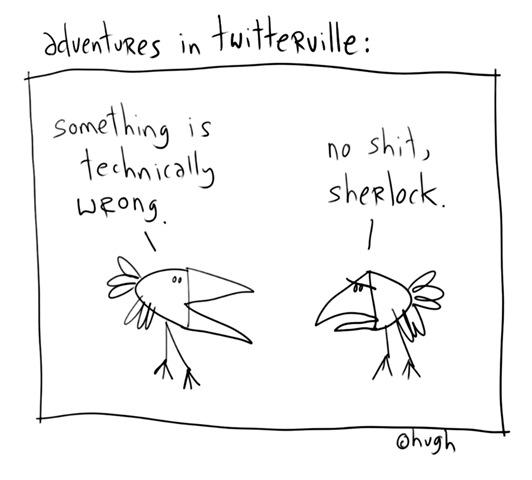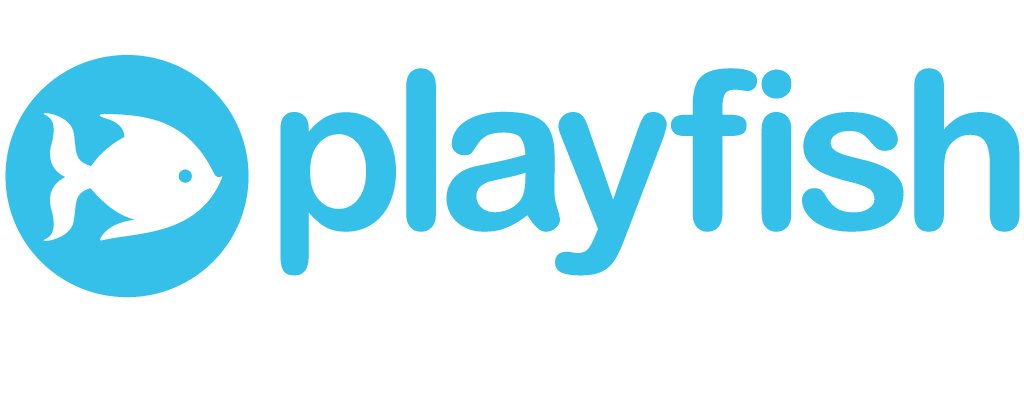 It is this time of the year where people start looking forward (and back) and come up with clever analyses of things we have always known and those that we haven’t. And because Europe has always (?) been the thoughtful and fashionably skeptic part of the world, it is that one of the leading newspapers, the Guardian, posts an article querying, gosh, Twitter. The link actually contains the words
It is this time of the year where people start looking forward (and back) and come up with clever analyses of things we have always known and those that we haven’t. And because Europe has always (?) been the thoughtful and fashionably skeptic part of the world, it is that one of the leading newspapers, the Guardian, posts an article querying, gosh, Twitter. The link actually contains the words
trouble-twitter-social-networking-banality
The proof? Iran is still not free (or so most of us Westeners think) and only 0.027% of Iranians use Twitter. There you have it. It concludes that it is all narcissistic navel-gazing. The comments, alas, are a delight to read… 🙂
Where are we then? Is this true? It is – you may have guessed that this be my stance – not. And here’s why:
 Social media (Twitter included) is nothing in itself, it merely defines a group of tools. Therefore, it is not the emperor’s new clothes, it is – if anything – the emperor’s new herald: if the emperor has nothing new, interesting, noteworthy to tell, it will remain as dull and meaningless as before but social tools actually allow you to filter, to focus, to spread noteworthy, sensible and truly good stuff to a group of people that is much larger than you could have reached before at a cost that is (per capita and in toto) much lower than before. And that means it is one cool tool!
Social media (Twitter included) is nothing in itself, it merely defines a group of tools. Therefore, it is not the emperor’s new clothes, it is – if anything – the emperor’s new herald: if the emperor has nothing new, interesting, noteworthy to tell, it will remain as dull and meaningless as before but social tools actually allow you to filter, to focus, to spread noteworthy, sensible and truly good stuff to a group of people that is much larger than you could have reached before at a cost that is (per capita and in toto) much lower than before. And that means it is one cool tool!
There are a gazillion reasons to dismiss Twitter (or Facebook – although fewer people seem to do just that these days) on the basis of boring info about breakfast/lunch/supper/traffic jam on way home or to hype it up on the basis of opposition in Iran/arrests in Egypt/tsunamis in Thailand or a mere plane landing on the Hudson. The argument fails both ways. It is not that. It is the fact that it is possible to communicate at nigh zero costs with people that may be interested – and it is upon the people to find you but it is also upon you to find the interesting bits!
I am already slightly tired to refer to Clay Shirky’s Here Comes Everybody who provides us with some beautiful examples of this but the point is (and here Shirky’s academic background serves him really well): it is a tool, and a tool makes only sense (or nonsense) in the hand of its user. So here’s to everyone who complains about useless and redundant info over Twitter: choose better who you follow; you would not stick around some dinner party endlessly discussing the virtues of starching napkins either, would you?
 As with every tool (say, a hammer), social tools are more useful, the easier and intuitive they are to use. If it is self-explanatory on how to extract something positive (e.g. to get that bloody nail into that bloody board), the better (and if you can do it without walking away with a bloody thumb, even better). At the moment, many people walk away from Twitter because of a bloody thumb. But would you dismiss a hammer only because you hit yourself? Probably not. Unless you find a better hammer of course…
As with every tool (say, a hammer), social tools are more useful, the easier and intuitive they are to use. If it is self-explanatory on how to extract something positive (e.g. to get that bloody nail into that bloody board), the better (and if you can do it without walking away with a bloody thumb, even better). At the moment, many people walk away from Twitter because of a bloody thumb. But would you dismiss a hammer only because you hit yourself? Probably not. Unless you find a better hammer of course…
Finally (and because I called this blog “on mobile”), here’s why the combination of social tools with this other tool in everyone’s hands, namely the mobile phone, is so powerful:
- Daily circulation of newspapers worldwide: 450,000,000
- Number of TV sets in use worldwide: 1,500,000,000
- Number of Internet users worldwide: 1,600,000,000
- Number of credit cards worldwide: 1,700,000,000
- Number of toothbrushes in use worldwide: 2,250,000,000
- Number of mobile subscriptions worldwide: 4,600,000,000.
Have a great 2010!
Cartoon credit: Hugh MacLeod (http://gapingvoid.com/)
![]() Apple has released an App Store Facebook app (which was aptly tagged with: “there’s a Facebook app for that”). This is a nifty move as it allows Apple a canvas from where to make discovery of apps as well as features and promotions somewhat easier.
Apple has released an App Store Facebook app (which was aptly tagged with: “there’s a Facebook app for that”). This is a nifty move as it allows Apple a canvas from where to make discovery of apps as well as features and promotions somewhat easier. It also highlights the increasing shift towards social discovery, and Facebook is – in my opinion (but then, and this is a disclaimer, given the work I do with Scoreloop, what do you expect?) only a first (albeit good) step: people care about what their friends say, play, do, recommend. And it is this community you need to unlock to get closer to access the social graph in ways that are meaningful to the single person. Where better to do it than from within a game or app though? 😉
It also highlights the increasing shift towards social discovery, and Facebook is – in my opinion (but then, and this is a disclaimer, given the work I do with Scoreloop, what do you expect?) only a first (albeit good) step: people care about what their friends say, play, do, recommend. And it is this community you need to unlock to get closer to access the social graph in ways that are meaningful to the single person. Where better to do it than from within a game or app though? 😉
 I know, I know, there’s a ton of conferences out there at the moment but this one has some real goodies to offer. The
I know, I know, there’s a ton of conferences out there at the moment but this one has some real goodies to offer. The  It is this time of the year where people start looking forward (and back) and come up with clever analyses of things we have always known and those that we haven’t. And because Europe has always (?) been the thoughtful and fashionably skeptic part of the world, it is that one of the leading newspapers, the Guardian,
It is this time of the year where people start looking forward (and back) and come up with clever analyses of things we have always known and those that we haven’t. And because Europe has always (?) been the thoughtful and fashionably skeptic part of the world, it is that one of the leading newspapers, the Guardian,  Social media (Twitter included) is nothing in itself, it merely defines a group of tools. Therefore, it is not the emperor’s new clothes, it is – if anything – the emperor’s new herald: if the emperor has nothing new, interesting, noteworthy to tell, it will remain as dull and meaningless as before but social tools actually allow you to filter, to focus, to spread noteworthy, sensible and truly good stuff to a group of people that is much larger than you could have reached before at a cost that is (per capita and in toto) much lower than before. And that means it is one cool tool!
Social media (Twitter included) is nothing in itself, it merely defines a group of tools. Therefore, it is not the emperor’s new clothes, it is – if anything – the emperor’s new herald: if the emperor has nothing new, interesting, noteworthy to tell, it will remain as dull and meaningless as before but social tools actually allow you to filter, to focus, to spread noteworthy, sensible and truly good stuff to a group of people that is much larger than you could have reached before at a cost that is (per capita and in toto) much lower than before. And that means it is one cool tool! As with every tool (say, a hammer), social tools are more useful, the easier and intuitive they are to use. If it is self-explanatory on how to extract something positive (e.g. to get that bloody nail into that bloody board), the better (and if you can do it without walking away with a bloody thumb, even better). At the moment, many people walk away from Twitter because of a bloody thumb. But would you dismiss a hammer only because you hit yourself? Probably not. Unless you find a better hammer of course…
As with every tool (say, a hammer), social tools are more useful, the easier and intuitive they are to use. If it is self-explanatory on how to extract something positive (e.g. to get that bloody nail into that bloody board), the better (and if you can do it without walking away with a bloody thumb, even better). At the moment, many people walk away from Twitter because of a bloody thumb. But would you dismiss a hammer only because you hit yourself? Probably not. Unless you find a better hammer of course… In my last post, I hinted that the
In my last post, I hinted that the  Why is this more significant? Because it is (like Google/AdMob) a cross-platform play that (unlike Google/AdMob) also expands the basis of business models deployed. Playfish derives the majority of its revenues from so-called virtual currencies, and in particular also from lead-generation deals (which recently have
Why is this more significant? Because it is (like Google/AdMob) a cross-platform play that (unlike Google/AdMob) also expands the basis of business models deployed. Playfish derives the majority of its revenues from so-called virtual currencies, and in particular also from lead-generation deals (which recently have 


